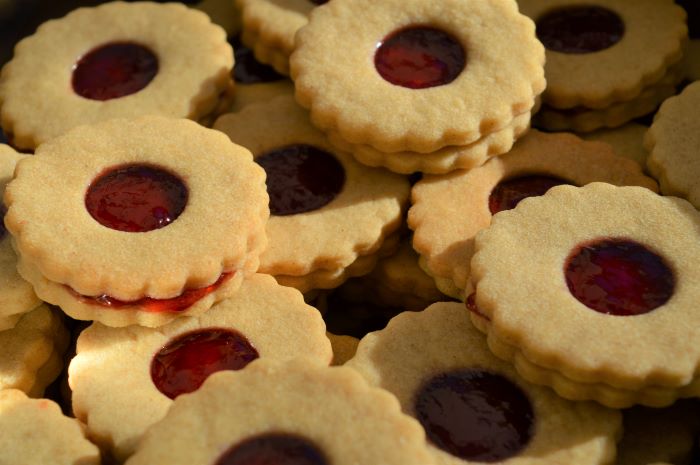Biscuits are a beloved treat all around the world. Whether you enjoy them with tea, coffee, or as a snack, they are a staple in many households. But have you ever wondered about the origins of this delicious snack?
The word "biscuit" has a fascinating history that goes all the way back to ancient Rome. "Bis" means twice in Latin, and "coctus" means cooked. The Romans would bake bread twice to make it last longer, and this is where the word "biscuit" comes from.

But the story doesn't end there. Over time, the word "biscuit" took on various meanings and interpretations, depending on the country and language. From "bescuit" in Old French to "beschuit" in Dutch, the word has evolved and shaped the way we understand this baked treat.
In this article, we'll explore the etymology and meaning of "biscuit" and how it has become a beloved snack worldwide.
Early history of biscuits
The ancient Greeks and Romans also made biscuits, which were called "biscotti." These biscuits were made from a mixture of flour, eggs, and sugar, and were often flavoured with almonds or anise. They were baked twice, just like the Roman bread, to make them crisp and dry. Biscotti were often dipped in wine to soften them before eating.
In the Middle Ages, biscuits were a luxury item, reserved for the wealthy. They were often made with expensive ingredients such as spices, honey, and dried fruits. These biscuits were known as "spiced bread", "gingerbread" or "lebkuchen" and were often given as gifts.
The evolution of biscuit-making techniques
In the 19th century, the Industrial Revolution brought about significant changes in the way biscuits were made. Biscuit-making machines were invented, which made it possible to mass-produce biscuits. This made biscuits more affordable and accessible to the general public.
The different types of biscuits around the world

The cultural significance of biscuits

In the US, biscuits are often associated with Southern cuisine. Biscuits and gravy is a popular breakfast dish in the South, and it is often served with eggs, bacon, or sausage.
In Japan, biscuits are often given as gifts during the holidays. They are beautifully packaged and often come in unique flavours such as green tea or strawberry.
The role of biscuits in modern cuisine
Fun facts and trivia about biscuits
- The world's largest biscuit was made in 2001 in the UK. It weighed over 40,000 pounds and was over 100 feet long.
- The first Oreo biscuit was sold in 1912.
- The word "cookie" comes from the Dutch word "koekje," which means "little cake."
- The most expensive biscuit ever sold was a 23-carat gold-plated biscuit, which sold for over $1,000.
Biscuit-related idioms and expressions
- "That's the way the cookie crumbles" - meaning that things don't always go as planned.
- "(well) butter my butt and call me a biscuit" - expression of surprise.
-
"Take the biscuit" - meaning something that is particularly annoying or surprising.
At The Biskery we're proud that we're evolving the word biscuit even further through our brand name. And we simply love that we work dough and mix ingredients, much like they did in the olden days. So that we can provide you with treats that are worthy of being gifted and enjoyed.









